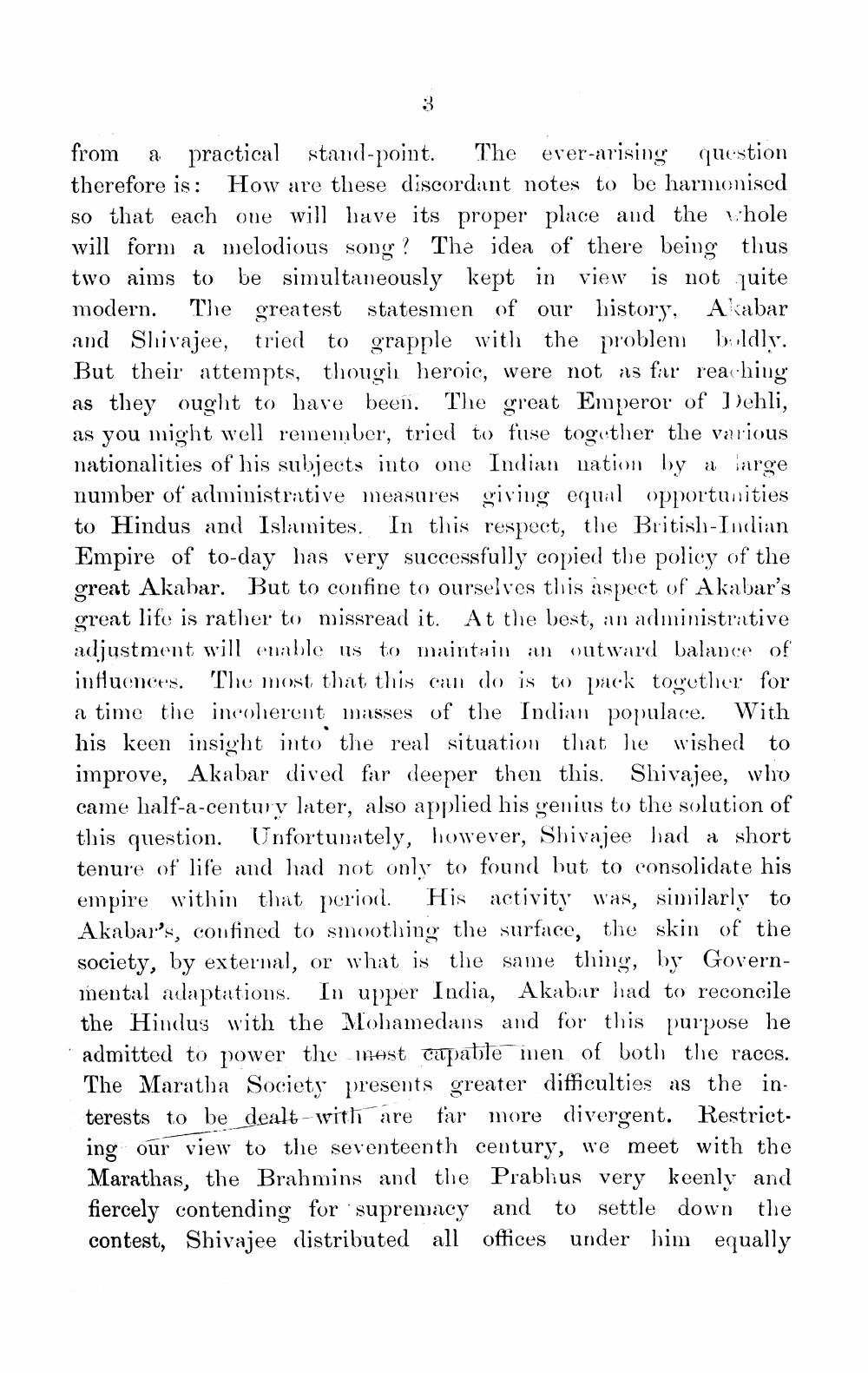________________
3
from a practical stand-point. The ever-arising question therefore is: How are these discordant notes to be harmonised so that each one will have its proper place and the whole will form a melodious song? The idea of there being thus two aims to be simultaneously kept in view is not quite modern. The greatest statesmen of our history, Akabar and Shivajee, tried to grapple with the problem boldly. But their attempts, though heroic, were not as far reaching as they ought to have been. The great Emperor of Dehli, as you might well remember, tried to fuse together the various nationalities of his subjects into one Indian nation by a large number of administrative measures giving equal opportunities to Hindus and Islamites. In this respect, the British-Indian Empire of to-day has very successfully copied the policy of the great Akabar. But to confine to ourselves this aspect of Akabar's great life is rather to missread it. At the best, an administrative adjustment will enable us to maintain an outward balance of influences. The most that this can do is to pack together for a time the incoherent masses of the Indian populace. With his keen insight into the real situation that he wished to improve, Akabar dived far deeper then this. Shivajee, who came half-a-century later, also applied his genius to the solution of this question. Unfortunately, however, Shivajee had a short tenure of life and had not only to found but to consolidate his empire within that period. His activity was, similarly to Akabar's, confined to smoothing the surface, the skin of the society, by external, or what is the same thing, by Governmental adaptations. In upper India, Akabar had to reconcile the Hindus with the Mohamedans and for this purpose he admitted to power the most capable men of both the races. The Maratha Society presents greater difficulties as the interests to be dealt with are far more divergent. Restricting our view to the seventeenth century, we meet with the Marathas, the Brahmins and the Prabhus very keenly and fiercely contending for supremacy and to settle down the contest, Shivajee distributed all offices under him equally




